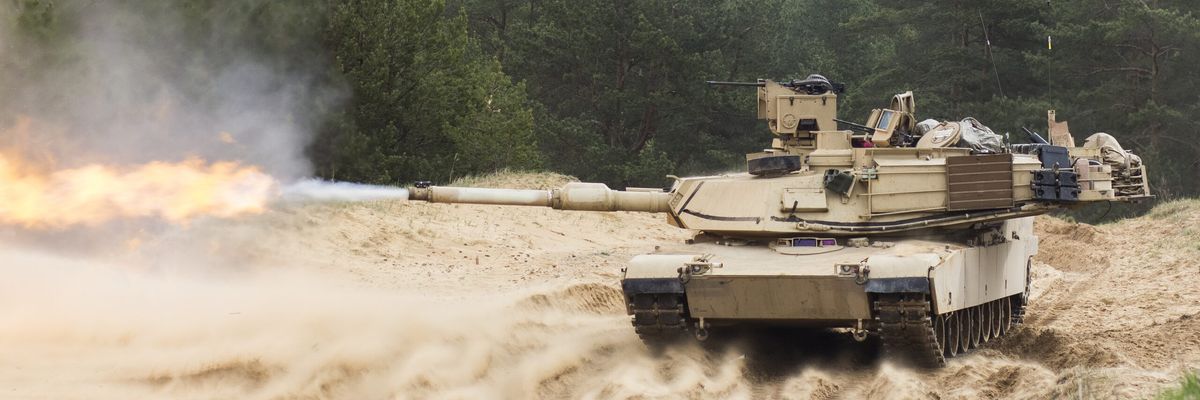In a major reversal, Germany and the United States will send their top-of-the-line battle tanks to Ukraine, though it could be months before they see the battlefield, according to new reports from Politico and the Associated Press.
The decision comes after a week of tense negotiations in which Berlin made clear that it did not want to be the first to provide Kyiv with tanks, which Moscow will no doubt view as a significant escalation of NATO involvement in the conflict. U.S. officials also hesitated to send M1 Abrams tanks, arguing that they would be logistically complicated for Ukraine to operate and require extensive training.
The deal will end Berlin’s opposition to other states sending their own Leopard tanks, which are made by German companies, to Ukraine.
Suzanne Loftus, a research fellow at the Quincy Institute, worries that the West’s reversal on tanks could “encourage a retaliatory response from Russia that will be even more escalatory.”
“This is going to help feed the narrative that Russia is in a war with NATO,” Loftus added, noting that she expects that many Russians will react to the move with “more anti-westernism and more support rallying around the flag.”
The controversy also “reflects a lack of consensus in the West over how to end the war successfully,” according to George Beebe of the Quincy Institute. Poland, the United Kingdom, and the Baltic states have advocated total victory in Ukraine since the early days of the war, while Germany and France have expressed doubts about the possibility of such an outcome.
“U.S. thinking on this debate appears to be in flux,” said Beebe, who previously led Russia analysis at the CIA. While American officials used to dodge questions of “total victory,” the Biden administration is now reportedly encouraging Ukraine to threaten Russian control of Crimea, possibly in order to force Moscow to the negotiating table.
“This tactic, however, risks precipitating an escalatory reaction from Russia, which so far has refrained from actions that might produce a direct war with the West,” he added.
As RS has previously reported, the tanks will likely give Ukraine a significant boost in its efforts to retake land in its east, possibly including Crimea, which Russia has held since 2014. While the United States had previously sent armored vehicles like the Bradley fighting vehicle, tanks are a much more effective tool for a Ukrainian counter-offensive, according to Dan Grazier of the Project on Government Oversight.
“A main battle tank driving down the middle of a street in a war zone — that’s a real symbol of military power,” said Grazier. “Tanks are not invulnerable, but they’re a lot less vulnerable than other things like Strykers and Bradleys.”
It remains unclear how long it will take for Western tanks to reach the front lines in Ukraine. Grazier, who previously led tank training for the Marines at Fort Knox, noted that introductory training on an Abrams usually takes about three months. And AP reported that the American tanks will be produced to meet Ukraine’s demand instead of being taken from existing stockpiles, meaning that shipments could take from months to years to arrive.
















